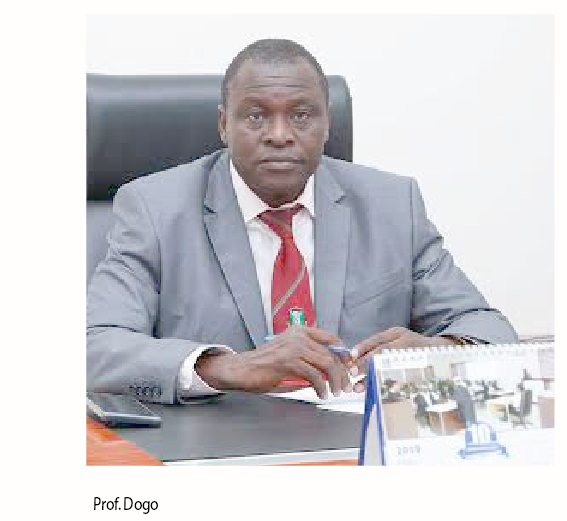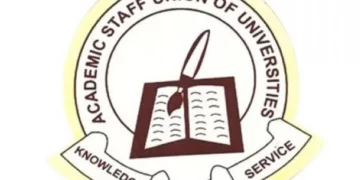There is no doubt that Nigeria is grappling with a bulging population of youths annually participating in the Unified Tertiary Matriculation Examination (UTME).
These youths jostle for limited spaces available due to insufficient carrying capacity in the tertiary institutions in the country.
It is also worrying that insistent industrial actions by academic staff in public universities and lack of proper investment in infrastructure for research and other academic activities have contributed to the failure of public educational institutions to provide their students with the appropriate outlets to exhibit their skills to make them stars that would function effectively in the 21st century.
Educationists and academia are of the view that any country serious about preparing her future generation to be competitive across the globe will ensure her tertiary institutions be it public or privately owned, are well funded with the best hands engaged to not just groom students for classroom work alone, but also in other aspects of learning.
It is the opinion of industry watchers that it has become imperative for managers of the Nigerian economy to provide universities with the funding opportunities required while also ensuring that the right investment for infrastructural development is in place, stressing that it will significantly improve the global and leadership rankings of the institutions.
Indeed, it could be argued that very few private universities operating in Nigeria understand the critical role that human capacity development and quality infrastructure could play in Nigeria’s quest to remain relevant in pan-African private higher education space and future growth.
However, few universities have understood this connection and have continued to invest in education.
One of such institutions adopting the strategy to change the narrative is Nile University of Nigeria, a private multidisciplinary University, established in 2009 and located in Abuja.
Its drive is evident in its commitment to building future generations of professionals and leaders that can thrive and positively impact our globalized world by leveraging academic innovation, state-of-the-art facilities, and a talented team of faculty and staff.
In keeping with its mission of developing world-class African and global-ready talent with the needed 21st-century skills to thrive in the globally disrupted world of work, the citadel of learning through its acquisition by Honoris United Universities (the first and largest pan-African private higher education network) has witnessed accelerated growth which is reflected in robust capital investments designed to support the University’s academic credentials and bolster its standing as one of Nigeria’s foremost institutions.
For Nile University, the value of administering the Honoris approach to educate the next generation of leaders and professionals able to impact regionally in a globalized world is not far-fetched.
The vision of this University for venturing into the Honoris approach was to deepen collaborative intelligence, cultural agility, and mobile mindsets to provoke academic excellence in both students and staff.
Again, since its inception, the Honoris approach has provided employability initiatives to prepare students for the future of work, as seen in the establishment of a Career Services Center: one of the few fully functional Career Services Centers (CSC) in any university in Nigeria. It provides students with the requisite support to gain the needed skills to thrive in a dynamic, digital future.
Secondly, there is a revamped Startup initiative updated and modernized to provide students and alumni a platform to pitch and secure funding and mentorship support for their business ideas, boosting its effectiveness.Dilli Dogo, Vice-Chancellor of the Nile University of Nigeria, said that since the acquisition of Nile University by Honoris United Universities, the largest pan-African private higher education network with 15 institutions across 10 African countries, there had been positive impacts on the University.
Dogo maintains that the acquisition has helped to increase infrastructural development, improve staff development and training, and increase student enrollment across many programmes.
According to him, Nile University graduated over 800 undergraduate and postgraduate students across five faculties, including Arts & Social Sciences, Management Sciences, Engineering, Natural & Applied Sciences, and Law in its recently concluded convocation ceremony.
He expressed delight at the number and quality of students graduating from the institution.Dogo said the University presently has five faculties and one college of health sciences comprising three faculties, adding that the law and engineering faculties were responsive to their various societal needs.
“In 2009, we started with 34 students, but by 2020, we had a little over 3,000. Today, we have over 6,000 students with increased facilities, infrastructural and manpower development, and retraining of our academics.
There has also been a surge in the enrollment of students in the school,” he said.Dogo further said that the University trains its students to impact society, which resonates with Honoris United Universities’ motto, ‘education for impact.’To further strengthen the value chain of quality private learning as Nigeria’s population grows, Nile University of Nigeria is determined to drive high-quality education, which is crucial for economic growth, innovation, and job creation.
Through the Honoris approach, the University meets the increasing demand of Nigerian families by furthering access to high-demand professions and skills, such as in STEM (from engineering to ICT) and Allied Health, as two examples.





